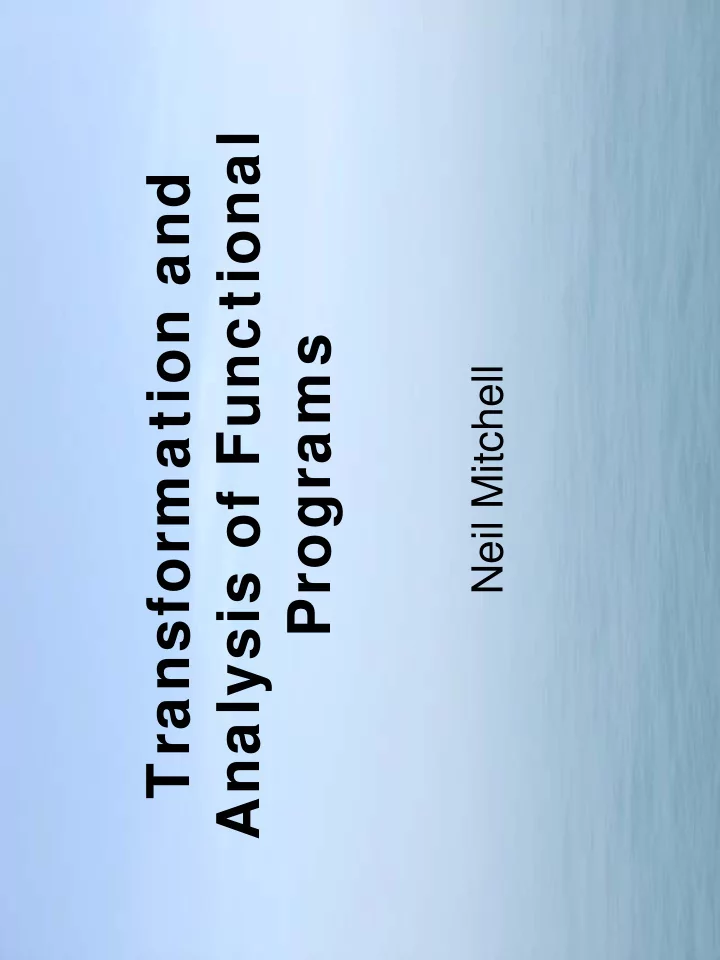

Analysis of Functional Transformation and Programs Neil Mitchell
The Thesis Catch Uniplate Checking, safer Generic, shorter Supero Firstify Optimisation, faster Defunctionalisation
Uniplate • Generics library (similar to SYB1) • Write concise traversals over structures • Collect all variables in an expression: [v | Var v <- universe x] • Make all variables title-case: transform f where f (Var (x:xs)) = Var (toUpper x : xs) f x = x
Uniplate advantages • No/few extensions • Simple types • Concise (~40% shorter than SYB) • Fast (at least 50% faster than SYB) • Makes use of compiler support • Does common stuff well
Supero • A supercompiler – Evaluate the program at compile time – Resituate so you terminate • Old ideas, but rarely implemented – Supercompilation from Turchin – Homeomorphic embedding from Glück • First attempt for Haskell
Supero improvements • New contributions – A strategy for let bindings – A better generalisation • Competitive with C (microbenchmarks) • Faster than GHC (small benchmarks) • Still a prototype, lots of choices to make
Firstify • Partial defunctionalisation + First-order analysis method = Higher-order analysis method • Take several ingredients – Arity raising, inlining, specialisation – Add termination bounds
Firstify results • Very practically motivated – Works well on the nofib suite • Stress test: print (0 :: Double) – Makes use of Arrays, IO Monad, IO Function, Show Continuation, list comprehensions..
Catch • Automatic safety proof – If Catch says “Safe”, your program will not crash by calling error • First-order language (needs Firstify) • Division into two parts – An algorithm (deals with Core) – A constraint language (the lossy bit)
Catch constraints • Constraints must: – Be finite (for a given type) – Provide three operations – The operations must be consistent • MP-constraints represent data type patterns in a finite way
Catch results • Tried on HsColour – Real program, real users – Even a web service (hpaste.org) – Found 3 real bugs, now fixed – 1 false positive, but a nice refactoring • Very automatic, but still powerful
Current status • Uniplate: already widely used • Supero: proof of concept • Firstify: works well enough for Catch • Catch: useful in some situations
Recommend
More recommend